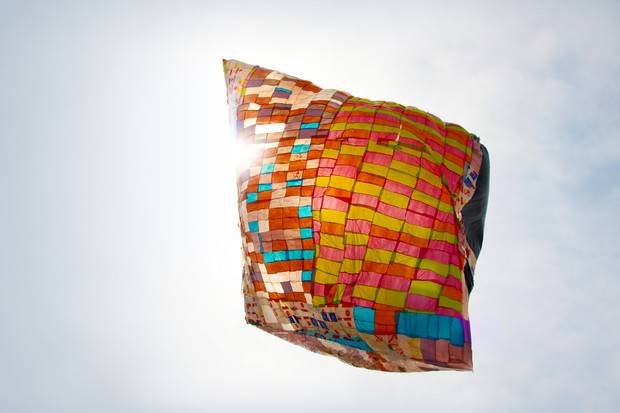Think you have strange reading habits? Wait until you've seen how Mcluhan reads
Reading seems easy only because we are used to it, but in this apparent normality there is plenty of space to be eccentric.
We often forget or neglect to think about the infinite circumstances that are condensed in the acts that we consider habitual. Using a fork to eat, for example, or walking down the street and being able to read the traffic and direction signs. Situations that would appear simple, but which have followed a long historical road to arrive at this quotidian simplicity.
This is also the case of reading, a practice that only recently has extended to include the majority of the population, as it was originally a skill that was reserved for only a few. Little by little, reading went from being an elite pursuit to one that is shared (such as the group readings out loud that took place in Europe in the 17th century) to finally becoming this act in apparent solitude and silence, almost intimacy, that we now indulge in.
But if this is a well-known and evident story, what to think then of the secret of under estimated chapters that were no longer written, that were passed from mouth to mouth like those anecdotes that remain in the bosom of the family? Reading, without a doubt, also has its history of eccentricity that has still to be written, and which would no doubt include the strange habits of Marshall McLuhan, the great theorist of communication who, and not by chance, concerned himself with The Gutenberg Galaxy and the impact of technology on our ways of ‘reading’ the world.
McLuhan, in all his lucidity, reads ‘serious’ books following this extravagant method:
If it’s a frivolous, relaxing book, I read every word. But serious books I read on the right-hand side only because I’ve discovered enormous redundancy in any well-written book, and I find that by reading only the right-hand page thus keeps me very wide awake, filling in the other page out of my own noodle.
We cannot know just how effective (or even feasible) this peculiar way of reading by McLuhan was. But it at least suggests a beautiful exercise: by only reading one side of a book, McLuhan forces himself to invent and imagine – and which is, after all, an extension of that eccentric normality with which any one of us carries out the simple task of reading.
Related Articles
When ancient rituals became religion
The emergence of religions irreversibly changed the history of humanity. It’s therefore essential to ask when and how did ancient peoples’ rituals become organized systems of thought, each with their
Seven ancient maps of the Americas
A map is not the territory. —Alfred Korzybski Maps are never merely maps. They’re human projections, metaphors in which we find both the geographical and the imaginary. The cases of ghost islands
An artist crochets a perfect skeleton and internal organs
Shanell Papp is a skilled textile and crochet artist. She spent four long months crocheting a life-size skeleton in wool. She then filled it in with the organs of the human body in an act as patient
A musical tribute to maps
A sequence of sounds, rhythms, melodies and silences: music is a most primitive art, the most essential, and the most powerful of all languages. Its capacity is not limited to the (hardly trivial)
The enchantment of 17th-century optics
The sense of sight is perhaps one the imagination’s most prolific masters. That is why humankind has been fascinated and bewitched by optics and their possibilities for centuries. Like the heart, the
Would you found your own micro-nation? These eccentric examples show how easy it can be
Founding a country is, in some ways, a simple task. It is enough to manifest its existence and the motives for creating a new political entity. At least that is what has been demonstrated by the
Wondrous crossings: the galaxy caves of New Zealand
Often, the most extraordinary phenomena are “jealous of themselves” ––and they happen where the human eye cannot enjoy them. However, they can be discovered, and when we do find them we experience a
The sky is calling us, a love letter to the cosmos (video)
We once dreamt of open sails and Open seas We once dreamt of new frontiers and New lands Are we still a brave people? We must not forget that the very stars we see nowadays are the same stars and
The sister you always wanted (but made into a crystal chandelier)
Lucas Maassen always wanted to have a sister. And after 36 years he finally procured one, except, as strange as it may sound, in the shape of a chandelier. Maassen, a Dutch designer, asked the
The doom-laden 19th century talking dolls
For more elegant and courageous generations than our own, there were talking dolls made of porcelain. Beings with hand-painted faces and robotic torsos and with an internal sound mechanism, activated










